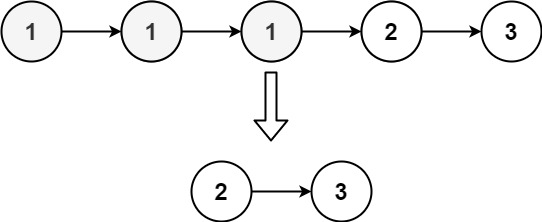2021-01-05 Daily-Challenge
Today I have done Minimum Swaps To Make Sequences Increasing on leetcode and leetcode's January LeetCoding Challenge with cpp.
Minimum Swaps To Make Sequences Increasing
Description
We have two integer sequences A and B of the same non-zero length.
We are allowed to swap elements A[i] and B[i]. Note that both elements are in the same index position in their respective sequences.
At the end of some number of swaps, A and B are both strictly increasing. (A sequence is strictly increasing if and only if A[0] < A[1] < A[2] < ... < A[A.length - 1].)
Given A and B, return the minimum number of swaps to make both sequences strictly increasing. It is guaranteed that the given input always makes it possible.
Example:
Input: A = [1,3,5,4], B = [1,2,3,7]
Output: 1
Explanation:
Swap A[3] and B[3]. Then the sequences are:
A = [1, 3, 5, 7] and B = [1, 2, 3, 4]
which are both strictly increasing.
Note:
A, Bare arrays with the same length, and that length will be in the range[1, 1000].A[i], B[i]are integer values in the range[0, 2000].
Solution
note that It is guaranteed that the given input always makes it possible.
class Solution {
public:
int minSwap(vector<int>& A, vector<int>& B) {
int len = A.size();
int pos = 1;
int answer = 0;
while(pos < len) {
while(pos < len && min(A[pos], B[pos]) > max(A[pos-1], B[pos-1])) {
pos += 1;
}
int cnt = 1, swap = 0;
while(pos < len && min(A[pos], B[pos]) <= max(A[pos-1], B[pos-1])) {
if(A[pos-1] > B[pos-1]) swap += 1;
cnt += 1;
pos += 1;
}
if(A[pos-1] > B[pos-1]) swap += 1;
answer += min(swap, cnt-swap);
}
return answer;
}
};
January LeetCoding Challenge 5
Description
Remove Duplicates from Sorted List II
Given the head of a sorted linked list, delete all nodes that have duplicate numbers, leaving only distinct numbers from the original list. Return the linked list sorted as well.
Example 1:

Input: head = [1,2,3,3,4,4,5]
Output: [1,2,5]
Example 2:

Input: head = [1,1,1,2,3]
Output: [2,3]
Constraints:
- The number of nodes in the list is in the range
[0, 300]. -100 <= Node.val <= 100- The list is guaranteed to be sorted in ascending order.
Solution
class Solution {
public:
ListNode* deleteDuplicates(ListNode* head) {
ListNode *newHead = new ListNode(-111, head);
ListNode *cur = newHead;
while(cur) {
if(cur->next && cur->next->next && cur->next->val == cur->next->next->val) {
int dupVal = cur->next->val;
while(cur->next && cur->next->val == dupVal) cur->next = cur->next->next;
} else {
cur = cur->next;
}
}
return newHead->next;
}
};